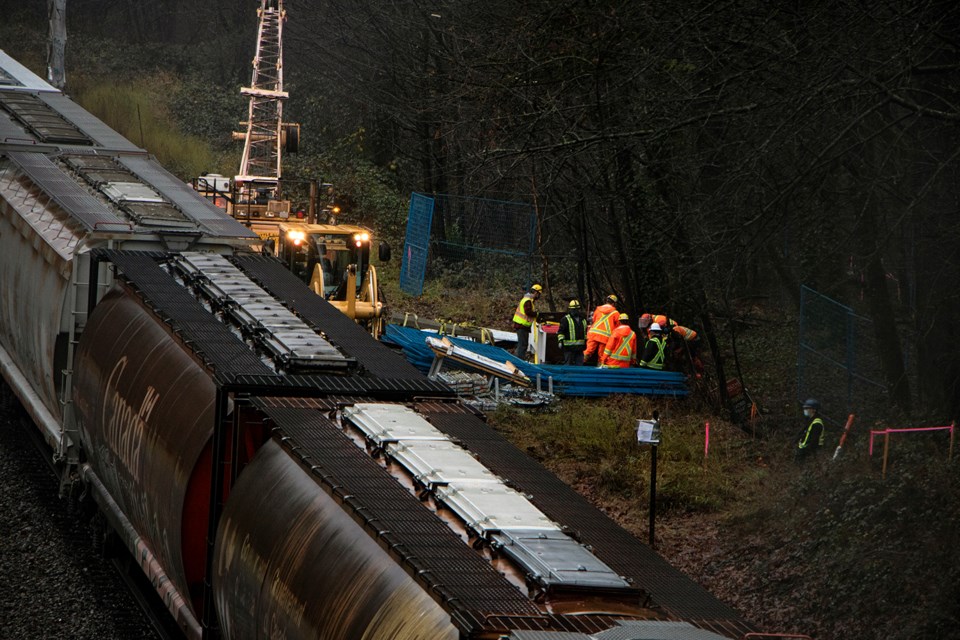Trans Mountain filed last month with the CER to bypass the city’s permitting bylaws, citing a previous ruling by the National Energy Board – the CER’s predecessor – that found the city had dragged its feet in providing permits to Trans Mountain.
This time, however, the city said the Crown corporation, while relying on the NEB’s ruling on permitting delays, “discloses no delay” in last month’s filings.
According to the city’s submissions, Trans Mountain “unilaterally demanded approval within four days” in its Dec. 7 tree permit application, threatening action with the CER if the city failed to approve the permits by Dec. 11. Trans Mountain then filed its CER complaint on Dec. 15 “without any further effort,” according to the city.
“Four days is a grossly insufficient time and not in good faith. Trans Mountain’s own evidence (is) that a tree permit would normally take 3-4 weeks, … which is a reasonable estimate for a normal application,” the city argued.
The city added the application “could and should have been reasonably expected to take more resources and more time” than a normal application, given it seeks to remove more than 1,300 trees.
The city’s response to Trans Mountain, according to its CER filings, was that it would not process applications made “without accepting a reasonable time expectation for its legitimate process and therefore without recognition of Burnaby’s lawful role.”
“Burnaby is a busy municipality with many citizens and extensive development, and therefore must deal with many permit applications. In fairness to all, applications are processed as they are received,” the city wrote in its CER argument.
“Trans Mountain did not respond by accepting a reasonable time for processing or Burnaby’s role (in fact, it did not respond at all). Instead, this application was filed … one week after the original permit application.”
In its submissions, the city quoted the NEB’s ruling, stating that “Burnaby cannot deny necessary municipal permits or variances thereto for the project; however, this does not render the entire municipal permitting process inoperable.”
“The board also indicated that ‘it is not a municipal regulator and is not prepared to replace municipalities in terms of overseeing and enforcing very specific municipal requirements,’” the city wrote, noting it has particular concerns around a city bylaw section that requires replacement trees.
In the city’s tree bylaw, any trees removed require one or more replacement trees. The city argued there is no constitutional basis for forcing an exemption for Trans Mountain.
The city is asking the CER to dismiss Trans Mountain’s application and to have Trans Mountain pay the city costs it incurred in the process.
The Alberta government submitted only a letter to the CER, saying it would not be submitting its own evidence but supported Trans Mountain’s arguments. In particular, the province pointed to “enormous” losses of roughly $100 million for every month of delay to the project.
The CER’s hearing process is expected to be completed by early February.
Follow Dustin on Twitter: @dustinrgodfrey
Send him an email: [email protected]



